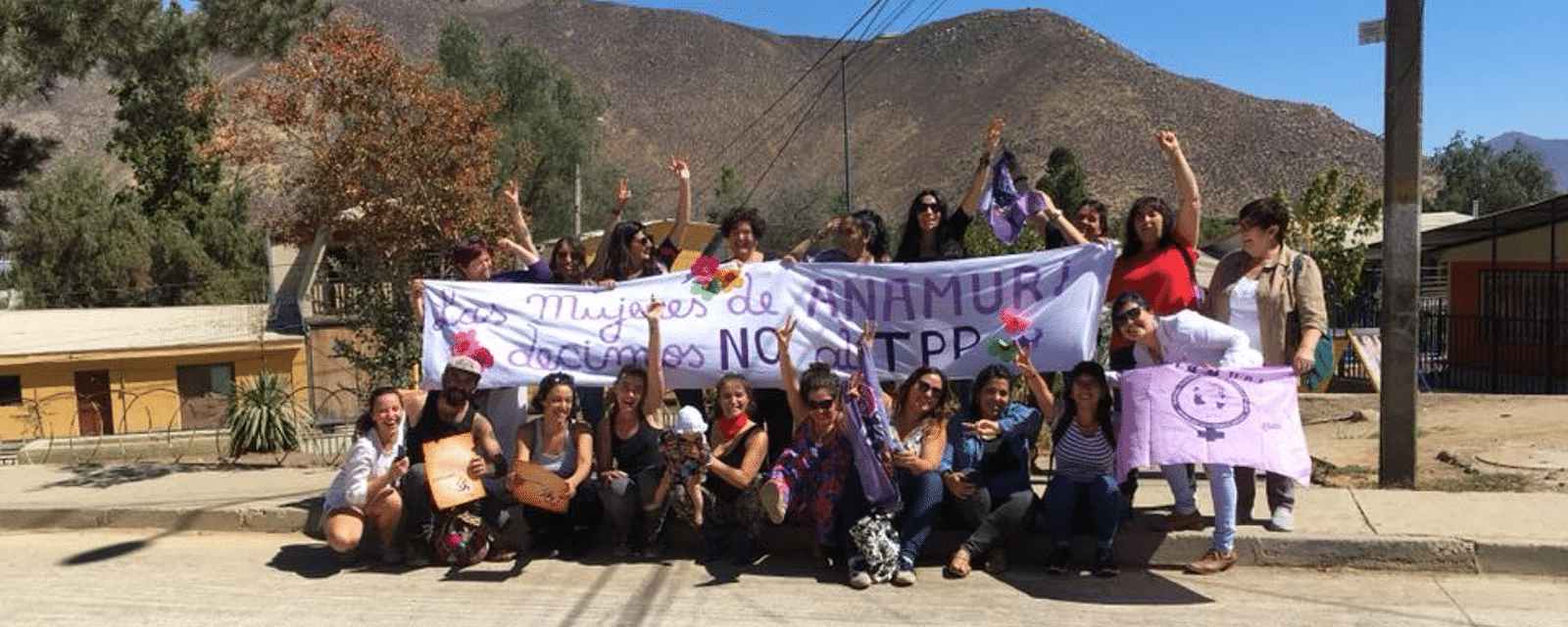Planting Hope: Grow Ahead Funds Chilean National Campesina to Campesina Exchange

Grow Ahead teamed up with ANAMURI, the National Association of Rural and Indigenous Women in Chile to raise $10,000 for a “Campesina a Campesina” exchange. From November 19th-21st, 2018, rural and indigenous women from different regions of Chile came together to discuss agroecology and the peasant struggle. The central objective of farmer-to-farmer was to bring farmers and organizations together to discuss mechanisms and actions that help to disseminate and promote the agroecology as a strategy for protection of the land and environment and food sovereignty.
Rural and Popular Feminism
A central topic of Planting Hope, ANAMURI’s Campesina a Campesina, was looking at agroecology from a peasant feminist perspective. Even within mainstream feminist movements, the struggles of rural and Indigenous women, the lack of access to land, schools, transportation, and health services, has been marginalized. Iridiane Graciele Seibert, a member of the La Via Campesina and Movement for Peasant Women in Brazil states, "Popular peasant feminism is a grassroots building of women pointing out our demands and our struggles in a shared way". She continues that, “our feminism speaks of a new relationship between humans and nature, that values peasant agriculture and questions the process of exploitation of the land, land and water grabs, extraction, and questioning the concept of nature as a dead space without life”
This concern is echoed by the recent UN United Nations Declaration on the Rights of Peasants and Other People Working in Rural Areas which states that, ‘peasant women and other rural women play a significant role in the economic survival of their families and in contributing to the rural and national economy, including through their work in the non-monetized sectors of the economy, but are often denied tenure and ownership of land, equal access to land, productive resources, financial services, information, employment or social protection, and are often victims of violence and discrimination in a variety of forms and manifestations’
The ANAMURI Campesina a Campesina exchange facilitated conversations about local conditions from region to region, agroecological tools and tactics for alternative food systems, alliances among organizations, and peasant feminism as well as the rights of rural workers. Rural and Indigenous Women are at the forefront of climate change movements and it is imperative to continue to support spaces and networks that bolster rural and indigenous women as they revive agroecology in rural culture.
Join Grow Ahead and support another Farmer-to-Farmer Training!
The Farmer-to-Farmer movement is based upon community empowerment, traditional knowledge, and local innovation and cooperation. Farmer-to-farmer trainings are the most effective method to “scale out” agroecology.